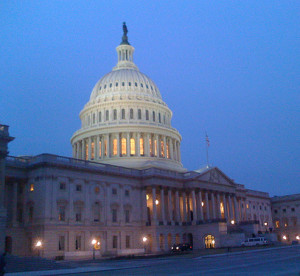FOR IMMEDIATE RELEASE | CONTACT:
Nicole L’Esperance (Blumenauer), 202-225-4811
Aaron Hunter (Davis), 202-225-1686
Patrick Malone (Himes), 202- 225-5541
Washington, DC – As Trans-Pacific Partnership (TPP) negotiators meet in Hawaii, Representatives Earl Blumenauer (OR-03), Susan Davis (CA-53), Jim Himes (CT-04), and other Democratic members of the U.S. House of Representatives who recently voted to grant President Obama Trade Promotion Authority (TPA) urged U.S. Trade Representative (USTR) Michael Froman to ensure Intellectual Property (IP) provisions in the TPP protect timely and affordable access to medicines.
In a letter to Ambassador Froman, the lawmakers emphasized that support for TPA does not translate into automatic support for the transpacific agreement, stating “At the conclusion of the negotiations, we will consider whether our constituents and country are better off with, or without, an agreement.” That question cannot be answered until the agreement is complete, but until then, they are committed to pushing for the best agreement possible. As such, they believe the IP chapter of TPP can and should ensure continued access to affordable medicines across all TPP countries.
“Here in the United States our system is not perfect, but it strikes a critical balance between protecting and fostering innovation, while also promoting timely, affordable access to medicines,” said Representative Blumenauer. “Making sure this trade agreement leads to similar outcomes for all partner countries is critical. A final TPP agreement should further, not hinder, public health through timely access to affordable medicines for all TPP members.”
“For us to call the TPP the most progressive trade deal in history and to comply with the May 10th Agreement, it should allow people around the world access to the lifesaving medicine they need,” said Representative Davis.
“President Obama has said that the Trans-Pacific Partnership will be the most modern, progressive trade deal ever,” said Representative Himes. “From the drafts that I have read, I hope this will be true. However, we cannot allow this trade agreement to result in people in developing countries being denied life-saving medicines because they are too expensive. We strongly encourage negotiators to find a balance between protecting the innovation and intellectual properties of companies who make significant investment and protecting the lives of those in desperate need of affordable treatments.”
“AARP applauds Reps. Blumenauer, Himes, and Davis for taking the lead on this important letter to the U.S. Trade Representative. It will only be with this kind of continued attention from Members of Congress that the promise of the TPP will be fulfilled in ensuring access to affordable medicines in the U.S. and abroad,” said Ariel Gonzalez, Director of AARP’s Federal Health & Family Team. “As it stands now, AARP is deeply concerned that the TPP’s intellectual property provisions would make it easier for drug makers to evergreen high cost prescription drugs and delay entry of less expensive generics and biosimilars.”
“The Generic Pharmaceutical Association (GPhA) commends Reps. Blumenauer, Himes, and Davis for their recognition of the importance of a balanced TPP that assures access to medicines for patients both in the United States and abroad,” said Ralph G. Neas, President and CEO of GPhA. “The U.S. generic industry needs a TPP that will allow American manufacturers to make affordable generics and biosimilars available overseas. We applaud this effort to demand accountability in TPP and ensure a balanced TPP that promotes both innovation and competition.”
“When it comes to intellectual property protections that affect pharmaceuticals, it is critical to maintain balance between expanding monopoly rights to favor patent owners and promoting generic competition that helps keep prices affordable for patients,” said Stephanie Burgos, Senior Policy Advisor for Oxfam America. “Oxfam hopes that USTR will take heed that Members of Congress want to ensure TPP provisions are held to the standards set in the May 10th Agreement and do not further expand monopolies so as not to inhibit access to medicines.”
Click here to read the letter.





